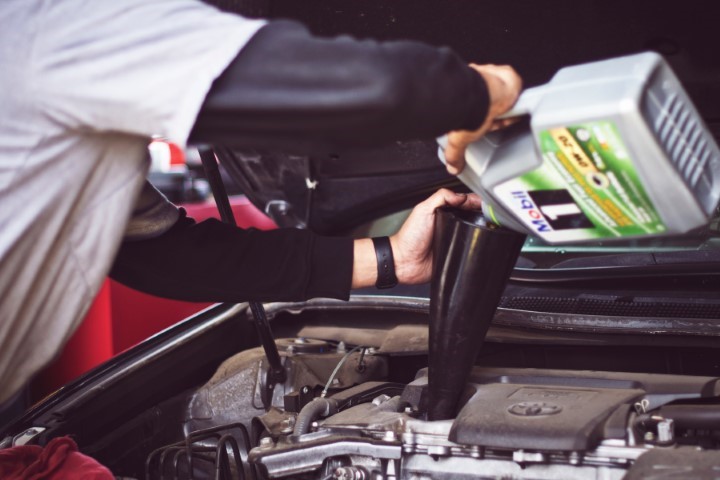 Auto defects can create a risk for dangerous car accidents resulting in serious injuries and damages. As a driver, it is important to be aware of the dangers of defective car parts and understand what to do if you have been impacted by an auto defect.
Auto defects can create a risk for dangerous car accidents resulting in serious injuries and damages. As a driver, it is important to be aware of the dangers of defective car parts and understand what to do if you have been impacted by an auto defect.
Common Types of Auto Defects
While auto defects do not affect all cars, some of the most common types of auto defects that have impacted drivers include:
- Faulty Brakes: Brake defects are one of the most common auto defects that can lead to accidents. Defective brake systems may fail to stop the vehicle or cause the car to pull to one side, leading to loss of control and risk of car accidents.
- Defective Tires: Tire defects can cause blowouts or tread separation, which can cause accidents from losing control of the vehicle while driving.
- Malfunctioning Airbags: Airbags are designed to protect drivers and passengers in the event of a crash, however, defective airbags which fail to deploy or deploy too forcefully can result in serious injuries.
- Steering Wheel Issues: Defective steering systems can cause the driver to lose control and direction of the vehicle. Common steering issues include loose or broken steering components, defective power steering systems, or misaligned wheels.
- Electrical System Malfunctions: Electrical system defects can cause a range of issues, including failures of the headlights, taillights, and turn signals. Defective lights can be dangerous and increase risk of accidents particularly when driving in low light conditions.
- Accelerator Defects: Accelerator defects can cause sudden and uncontrolled acceleration, leading to unexpected speeding and potential collisions with other vehicles or objects on the road.
These are just a few examples of common auto defects and several other types of defects can occur in different cars. Regular maintenance and prompt auto recall repairs or replacement can help prevent these types of defects from becoming a serious risk for car accidents.
How a Defective Car Part Can Cause an Accident
When an auto defect causes a vehicle to malfunction in some way, the driver can lose control and potentially crash into other vehicles or objects on the road. For example, faulty brakes or defective steering systems can cause the driver to lose control and direction of the vehicle.
Driving on defective tires has an increased risk of a tire blowout which can cause a car to lose control and pull to one direction. If the tire’s tread separates from the rest of the tire, it can cause the car to veer into the wrong direction off the road or into oncoming traffic. Another risk of driving with defective tires is uneven wear. This can cause the car to pull to one side, which can result in a loss of control and an accident with other vehicles.
Accelerator defects can cause sudden and unintended acceleration, making it difficult or impossible for the driver to control the speed of the vehicle when driving. For instance, a defect in the accelerator system can cause the pedal to become stuck, causing the car to accelerate uncontrollably. Another type of accelerator system malfunction can cause a delay in acceleration, which can be dangerous when trying to merge into traffic or avoid vehicles or obstructions ahead. Both of these types of malfunctions can cause car accidents since it limits the control the driver has over the vehicle and the speed at which the car drives.
Liability For Defective Auto Parts
When a car accident is caused by a defective auto part, several parties may be held liable for any injuries or damages including:
- Manufacturer: The manufacturer of the defective auto part may be held liable for any injuries or damages caused by the car accident since manufacturers have a duty to design and produce products that are safe for consumers to use. A manufacturer can be liable for an auto defect related car accident if the defect was a result of the manufacturer’s negligence, breach of warranty, or strict liability.
- Designer: The designer of the defective auto part may also be held liable if the design of the part was inherently dangerous and caused the accident. If the auto part designer failed to use reasonable care in designing, testing, or manufacturing the part, and that failure resulted in a defect that caused an accident, they can be held legally responsible.
- Seller: If the defective part was sold by a retailer or dealership, they may be held liable for any injuries or damages caused by the car accident. If the dealership or seller knew about a defect in the vehicle or its parts and failed to disclose it to the buyer, they can hold liability for any resulting car accidents.
- Repair Shop: If the defective part was installed by an auto repair shop and the accident was caused by a faulty installation, the repair shop may be held responsible for any resulting injuries or damages.
Determining liability for a car accident caused by a defective auto part can be complex, and may require the expertise of an experienced attorney. If you have been involved in a car accident caused by a defective auto part, you may be entitled to compensation for your injuries and damages. Seeking legal advice from an experienced attorney can help you understand your rights and options for filing a claim against the manufacturer, designer, or seller of the auto defective part.










